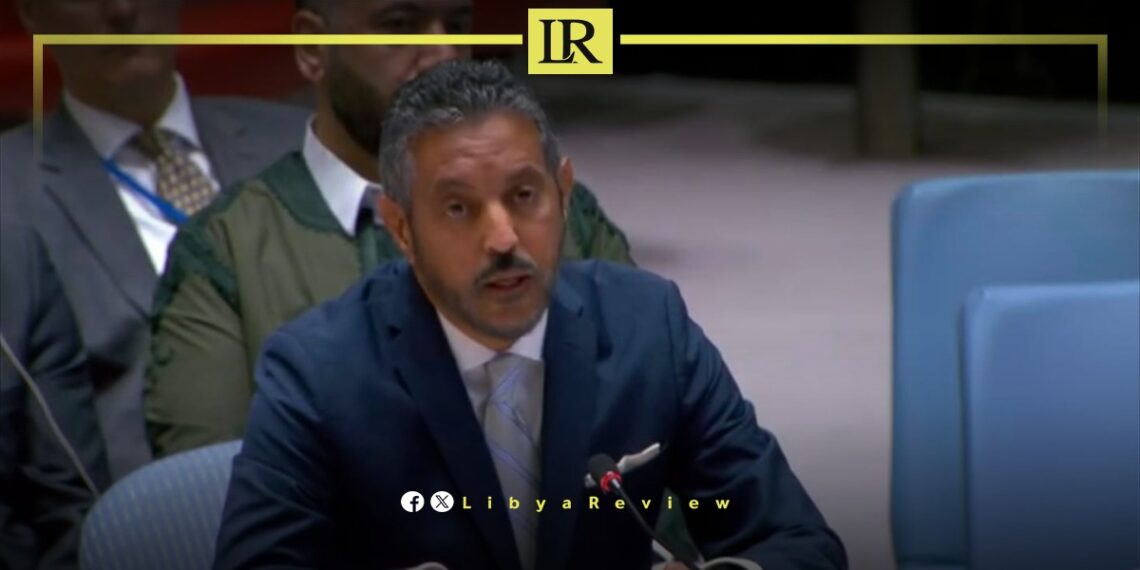Libya’s Representative to the United Nations, Taher El-Sonni, blamed foreign interference as the primary cause of the country’s crisis.
In his address to the UN Security Council on Wednesday, El-Sonni expressed frustration with the ongoing deadlock and external lectures on Libya’s affairs. He criticised regional and international powers for exploiting Libya.
El-Sonni pointed out that Libyans have lost faith in Security Council sessions, which have failed to resolve the crisis. He noted that no individuals, groups, or states have been identified as obstructors of peace in Libya.
The Libyan ambassador stressed that national reconciliation is the essential foundation for all other political processes. He highlighted that 2.8 million Libyans have registered to vote over the past three years and are still waiting for elections. El-Sonni emphasised that the Libyan people deserve clear answers about who is hindering the political process.
He called on Libyans to find a consensus on a clear roadmap for elections based on fair laws. El-Sonni urged that the solution should be left to the Libyan people to overcome the political deadlock.
El-Sonni remarked on Stephanie Khoury’s briefing, stating it underscored the stagnation in the political process. He stressed the importance of building on agreed points to continue the political track. El-Sonni lamented the decade-long stalemate, urging the Security Council to stop interfering and let Libya resolve its issues.
The Libyan envoy also demanded the implementation of the military agreement and the withdrawal of all foreign forces and mercenaries from Libya.
The Acting Head of the United Nations Support Mission in Libya (UNSMIL), Stephanie Khoury, presented her first briefing to the UN Security Council, addressing the ongoing crisis in Libya.
During her speech, Khoury reported that since taking on her role, she has been actively consulting with Libyans to understand their concerns and priorities, particularly regarding a Libyan-led political process. She has conducted meetings in both eastern and western Libya, engaging with political officials, academics, civil society organizations, women’s groups, military leaders, cultural representatives, and members of the diplomatic community.
Libyans have consistently voiced their need for a political agreement to organize elections and restore the legitimacy of national institutions. Khoury plans to continue these consultations, visiting more regions of Libya soon, and will share further observations with the UN Security Council.


